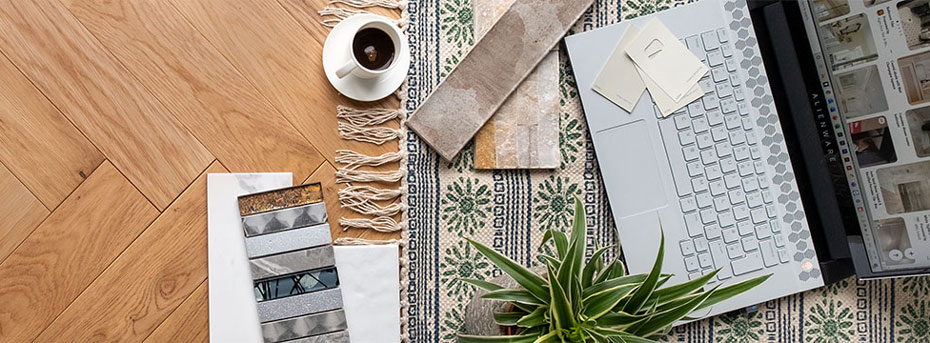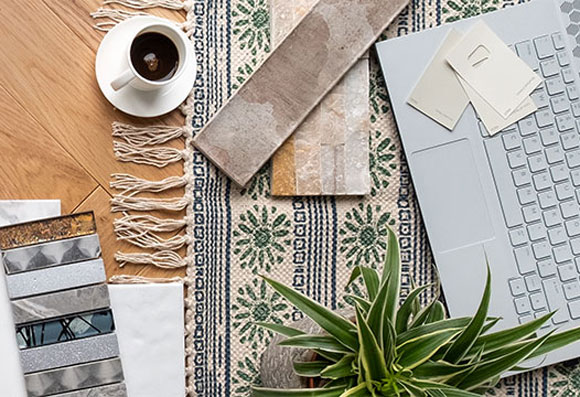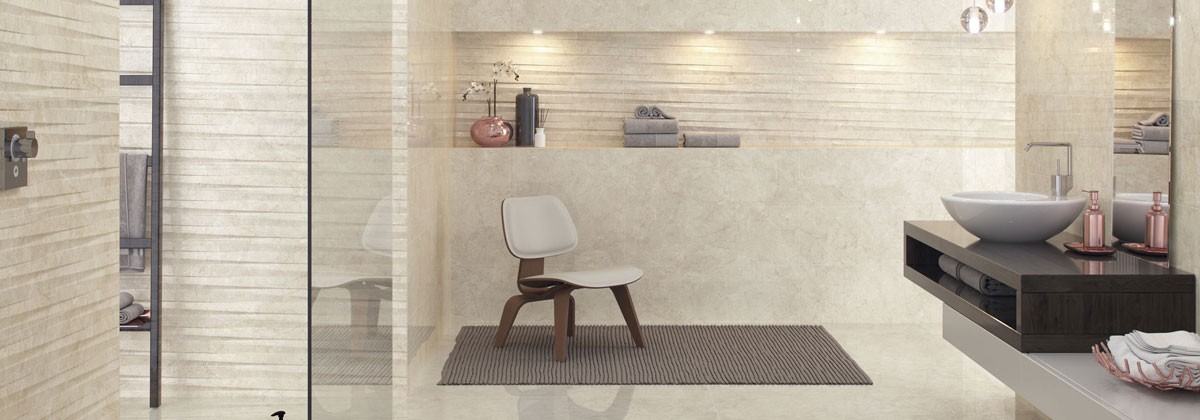
FAQ: Porcelain tiles. Your questions answered
Porcelain tiles are hugely popular for a variety of reasons. Here are the answers to your most pressing questions on the topic.
What is better: porcelain or ceramic tile?
While they are made from slightly different clays, porcelain and ceramic tiles are all kiln fired in much the same way. Inherently one isn’t better than the other, however, there are subtle differences which can affect your choice. Porcelain tiles are made from fine clay and dust particles and so are harder and denser, with better resistance to water absorption than ceramic ones. This makes them very strong and well suited to high-traffic floors. When they have an R11 or higher slip rating, porcelain is an excellent choice for outdoors. The flip side is that they are rather brittle and a little more difficult to cut than ceramic tiles. The real quality of both porcelain and ceramic options depends on the thickness of their glaze. The quality of underlayment and workmanship of the person laying the tiles will impact the final look and, in the case of floor tiles, how durable the surface is. Read more in our comparison article.
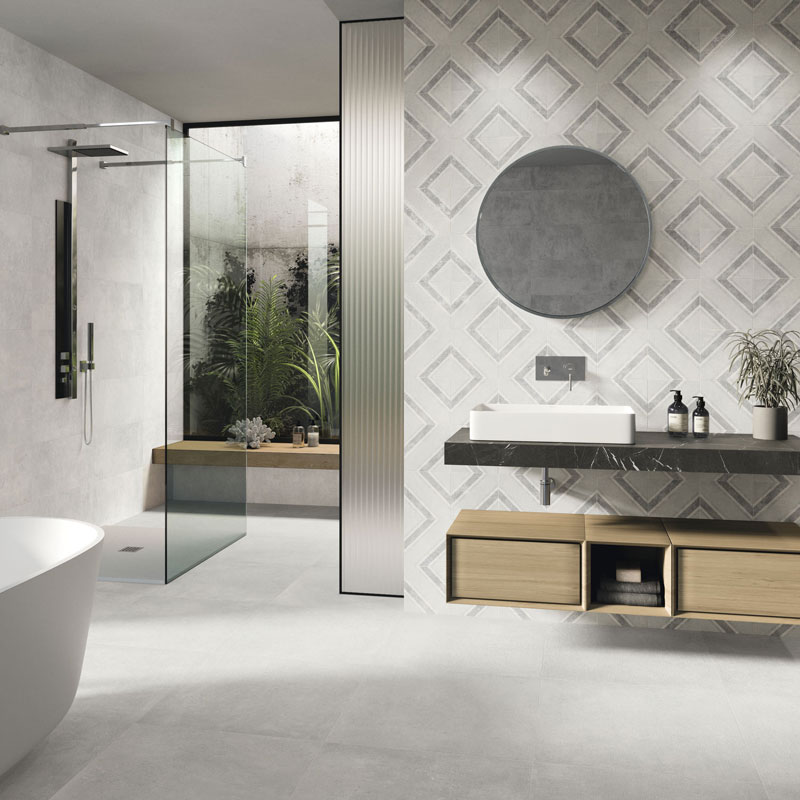
By far a more versatile choice than ceramic, porcelain tiles are available for bathrooms, wet rooms and outdoors.
Be sure to check the suitability of your chosen tile before purchasing.
Do you get porcelain wall tiles?
Dual-purpose porcelain tiles are rated for use on both floors and walls. Because they are dense and have good waterproofing properties, you can also use porcelain tiles in wet rooms. Be sure to choose a tile fit for purpose. The beauty of porcelain is that it's suitable for every room in the home from kitchens to bathrooms, hallways, living areas and bedrooms. You can choose from a wide range of designs and finishes, from high gloss marble-look tiles that create a haven of luxury to rustic designs for a country cottage feel.
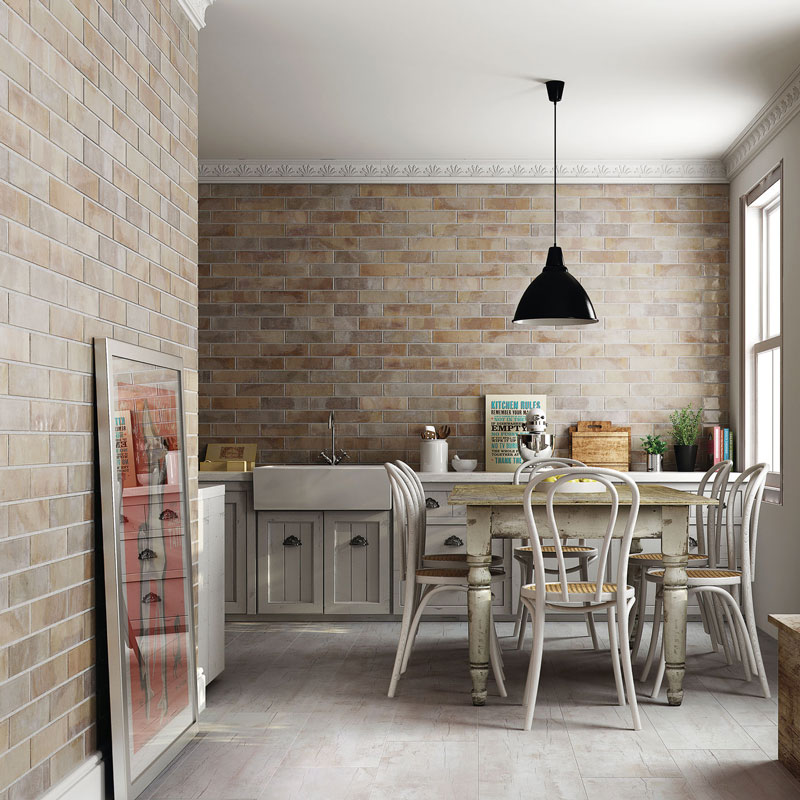
Porcelain wall tiles have the advantage of being non-porous, which gives them excellent waterproofing properties
making them ideal for bathrooms and kitchens. These subways give create a cosy yet stylish look in this kitchen.
Can I get porcelain floor tiles?
Porcelain is becoming a hugely popular choice for floors. They’re available in a wide variety of designs, from wood effect with realistic grain patterns to imitation marble that looks just as luxurious as the real thing. Floor tiles need to be fit for purpose and the slip rating (called the R rating) will tell you where you can use them. Highly polished and glossy porcelain tiles give a luxury look but they can be quite slippery and lighter-coloured tiles will show the dirt. There are five slip ratings from least slip resistant at R9 to highest slip resistance of R13, which can be used in industrial settings such as fish processing plants. Building standards will dictate which tiles should be used in which spaces. Read more about slip resistant ratings here.
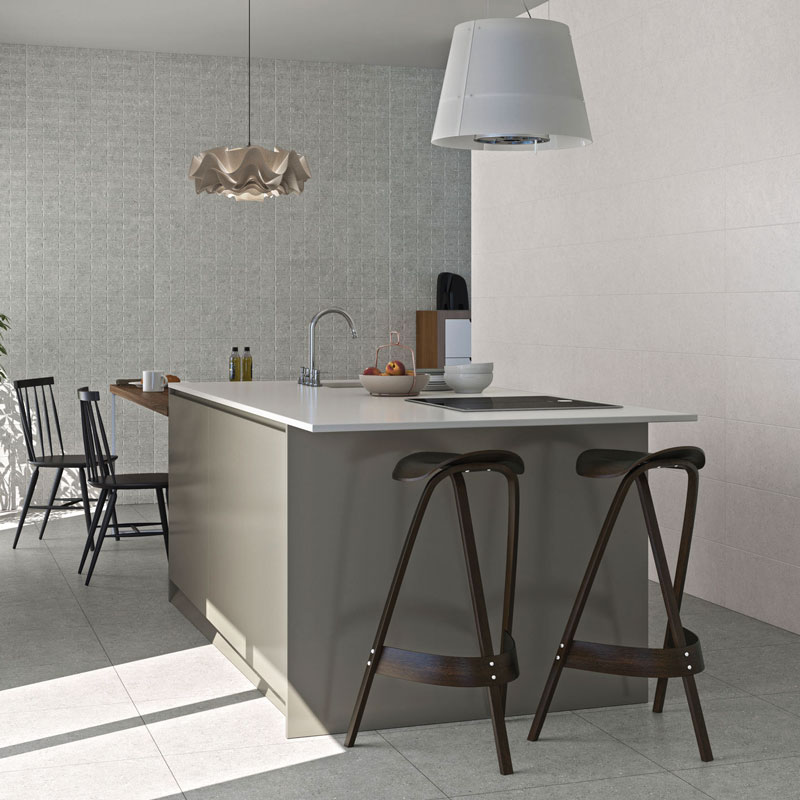
While glossy tiles tend to be a bit slippery, matt porcelain tiles often have a good slip-resistance,
which is a plus for homes with dogs, elderly people and children.
Which is cheaper: porcelain or ceramic tile?
Porcelain tiles tend to be more expensive than ceramic tiles. As a premium tile, porcelain’s slightly higher price tag does also mean that when it comes time to selling your home, it’s appealing to buyers and adds to your home’s re-sale value. Have a look at our quick-guide comparison of ceramic and porcelain tiles.
Is it more expensive to lay porcelain tiles?
Porcelain tiles are hard and dense which makes them extra durable. However, they can be difficult to cut, shape and drill, adding time tot he tiler's job, so you may need to factor this in as an additional cost to the project.
What are the pros and cons of porcelain?
The plus side of porcelain:
• Wide range of style choices
• Durable and water resistant
• Styles available for walls, floors and exteriors
• Good resistance to extreme temperatures
• High stain resistance
• Easy to clean and maintain
• Good return on investment as it adds to your property re-sale value
The downside:
• Difficult to install and repair as it’s tricky to cut, drill and shape
• Can be more expensive than ceramic
• Tiles may chip when handled
• Heavier to work with than ceramic tiles
• Usually requires professional installation
• Not a good choice for novice DIY projects
Do porcelain tiles chip easily?
Porcelain tiles can be brittle and may chip and crack if handled carelessly.
Can you use porcelain tiles outdoors?
By nature, porcelain is hard wearing and frost resistant. For outdoor use, choose tiles with at least an R11 slip rating. If you're wanting to lay them as pavers on grass or concrete, you'll need ones that are 20mm thick. Porcelain patio tiles can create an elegant and seamless flow from interior to exterior areas. Make sure your chosen tile is rated for outdoor use by checking the product specifications. Explore our range of outdoor porcelain tiles here.
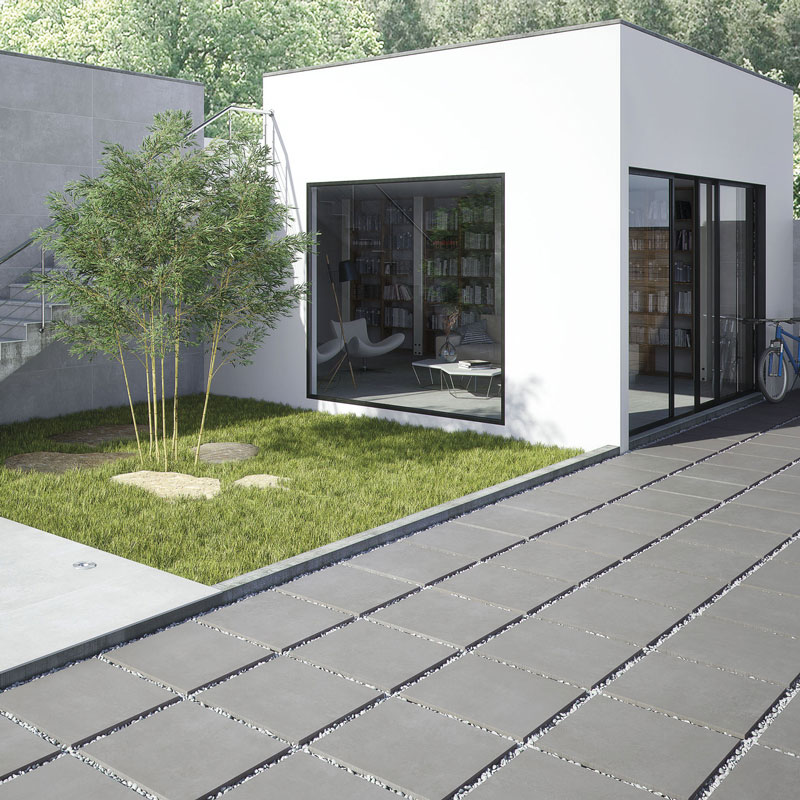
With our tricky weather, outdoor tiles need to be slip resistant in frost and snow. Porcelain can
withstand extremes of temperature better than ceramic tiles and so are the right choice as an outdoor tile.
Do porcelain tiles need to be sealed?
It’s not necessary to seal a glazed porcelain tile, however the grout between the tiles is porous and you may want to add a grout seal to prevent staining. Some polished porcelain tiles may require sealing after installation and your sales assistant can advise you when you choose your tile.
What is a PEI rating?
The tile industry provides a grading of tiles based on testing by the Porcelain Enamel Institute. It measures the surface wear layer of a tile (and does not rate a tile’s resistance to cracks or anti-slip rating). A tile is given a PEI rating for hardness based on a five-point scale:
0 No foot traffic. Light duty on walls only; not for floors.
1 No foot traffic. Wall use only in residential and commercial applications. This type of tile should never be used underfoot. Often used for shower surrounds.
2 Light foot traffic. Can be used for walls and low traffic floors such as bathrooms.
3 Light to moderate traffic. Suitable for countertops, walls and floors that receive normal foot traffic, with the exception of hallways and entrance areas. It's a good, general-purpose tile for all home uses. Not suitable for commercial use.
4 Moderate to heavy traffic. All residential applications (both walls and floors), as well as medium commercial and light institutional locations. Suits areas where abrasive dirt could be tracked such as entrances, hallways and balconies.
5 High foot traffic. All residential and heavy commercial and institutional spaces where there’s abusive heavy use. Typically these tiles are used only for flooring and are rarely attractive enough for interior residential applications.

